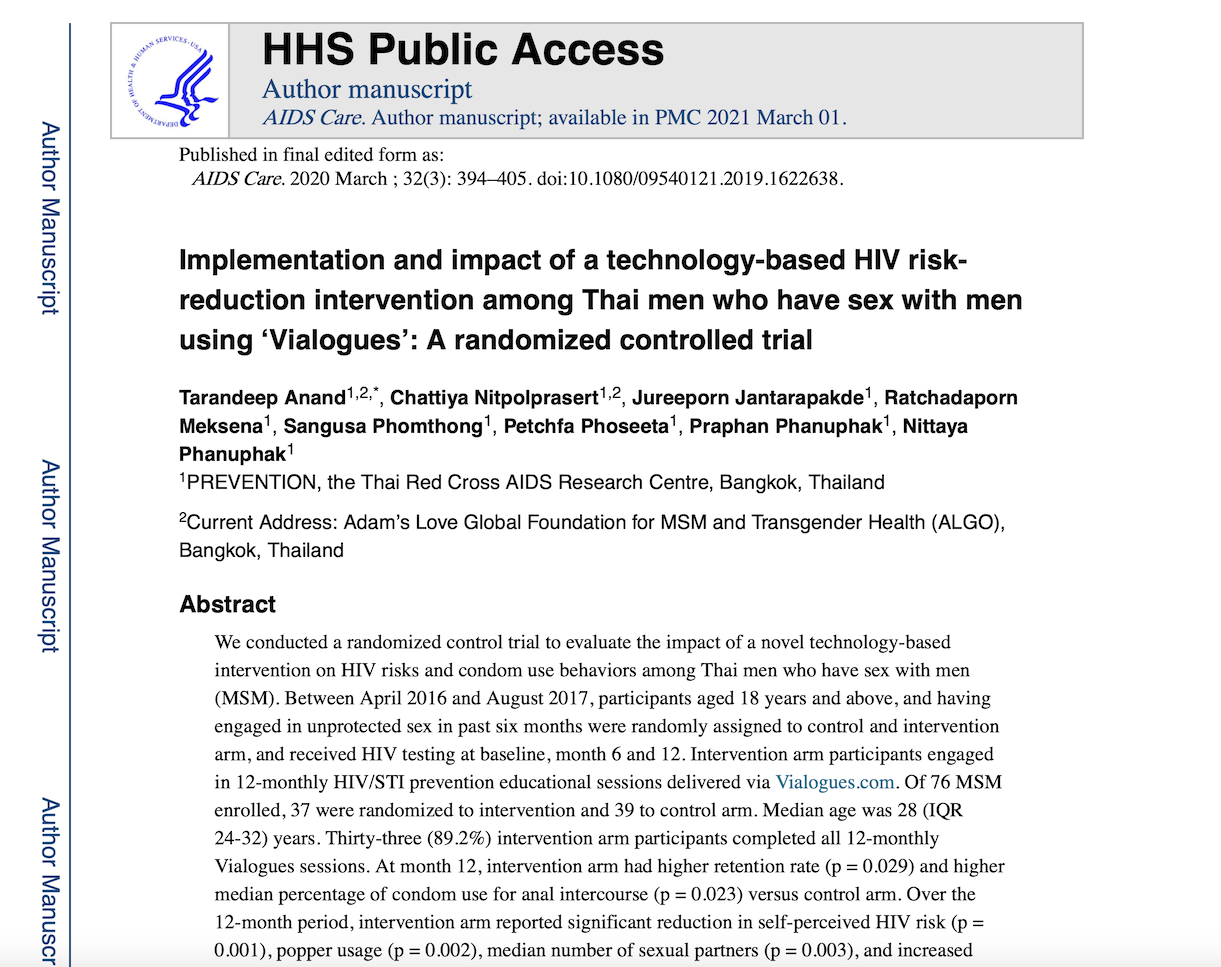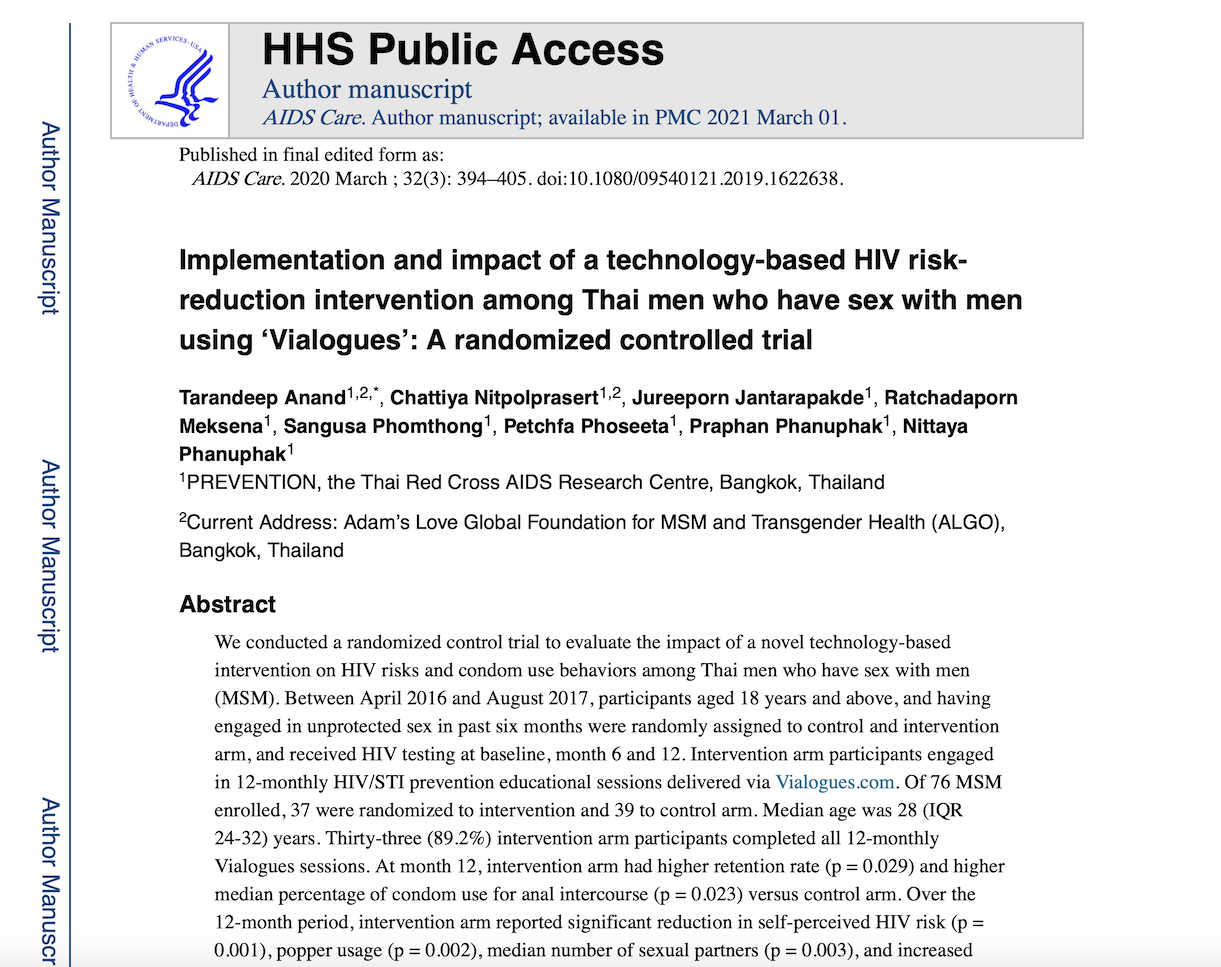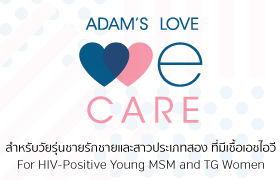|
|
Implementation and impact of a technology-based HIV risk-reduction intervention among Thai men who have sex with men using “Vialogues”: a randomized controlled trial Link to public access on PubMed, NCBI https://www.ncbi.nlm.nih.gov/pmc/articles/PMC6885531 Abstract We conducted a randomized control trial to evaluate the impact of a novel technology-based intervention on HIV risks and condom use behaviors among Thai men who have sex with men (MSM). Between April 2016 and August 2017, participants aged 18 years and above, and having engaged in unprotected sex in past six months were randomly assigned to control and intervention arm, and received HIV testing at baseline, month 6 and 12. Intervention arm participants engaged in 12-monthly HIV/STI prevention educational sessions delivered via Vialogues.com. Of 76 MSM enrolled, 37 were randomized to intervention and 39 to control arm. Median age was 28 (IQR 24–32) years. Thirty-three (89.2%) intervention arm participants completed all 12-monthly Vialogues sessions. At month 12, intervention arm had higher retention rate (p = 0.029) and higher median percentage of condom use for anal intercourse (p = 0.023) versus control arm. Over the 12-month period, intervention arm reported significant reduction in self-perceived HIV risk (p = 0.001), popper usage (p = 0.002), median number of sexual partners (p = 0.003), and increased median condom use percentage (p = 0.006). Our study highlights that “Vialogues” intervention significantly reduced number of sexual partners and condomless anal intercourse rates among Thai MSM, and has positive implications for reducing epidemic among key populations. Read full article online at AIDS Care Journal website: https://www.tandfonline.com/doi/full/10.1080/09540121.2019.1622638  Additional information Funding The randomized control trial was supported by Aidsfonds. Funding support was provided in part by ViiV Healthcare, MAC AIDS Fund, amfAR, The Foundation for AIDS Research and through a grant from the National Institute of Health’s National Institute of Allergy and Infectious Diseases, Eunice Kennedy Shriver National Institute of Child Health and Human Development, National Cancer Institute, National Institute of Mental Health, and National Institute on Drug Abuse as part of the International Epidemiology Databases to Evaluate AIDS (IeDEA; U01AI069907). The content of this publication is solely the responsibility of the authors and does not necessarily represent the official views of any of the governments or institutions mentioned above. Acknowledgements The authors are extremely grateful to all our sponsors, and thank all research participants and study staff for their significant contributions. TA designed and led the study. TA assumed primary responsibility for writing and revising the manuscript. NP, CN, and RM substantially contributed to the preparation of this paper. All authors edited and reviewed the manuscript and gave their final approval for submission to the journal. Disclosure statement No potential conflict of interest was reported by the authors. Ethics approval The study was approved by the Ethics Research Committee/Institutional Review Board (IRB) at Chulalongkorn University, Department of Medicine, Bangkok, Thailand. |















